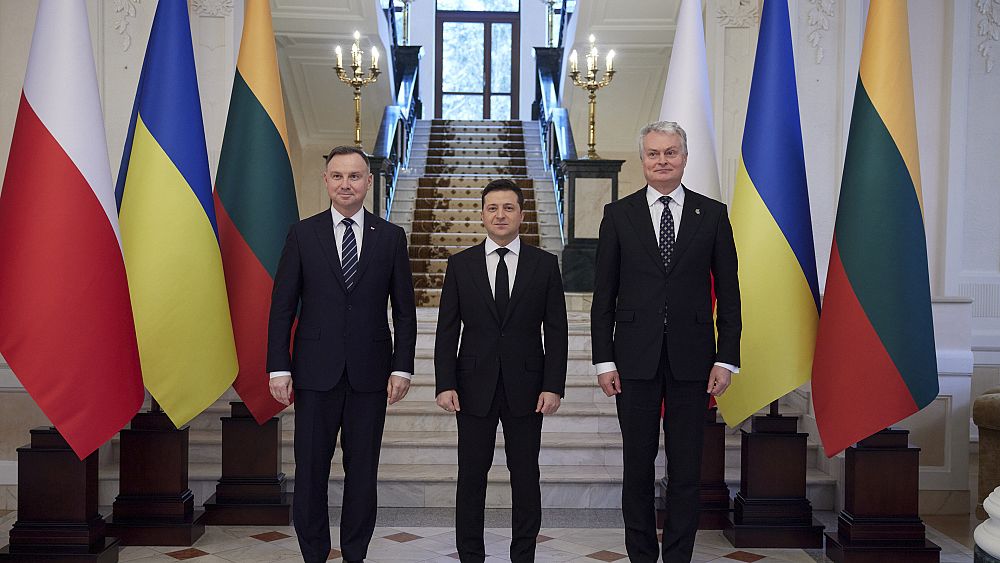
Poland and Lithuania have joined Ukraine in calling for stronger Western sanctions against Moscow, following the alleged Russian troop buildup near the Ukrainian border that has fuelled fears of an invasion.
Polish President Andrzej Duda and Lithuanian President Gitanas Nausėda met with Ukrainian President Volodymyr Zelenskyy for the first presidential trilateral meeting of the “Lublin Triangle” security alliance in Huta in western Ukraine’s Carpathian Mountains.
Duda and Nausėda gathered to show their support in the face of what they described as “an ongoing aggression against Ukraine”.
US intelligence officials say Russia has amassed 70,000 troops near its border with Ukraine and is preparing for a possible invasion early next year.
Moscow has denied any intention to attack, but demanded that NATO deny membership to Ukraine and other former Soviet countries, and roll back the alliance’s military deployments in Central and Eastern Europe.
Nausėda said the buildup is a threat to the entire region and the attempts by Russia to recreate zones of influence will not be tolerated.
“NATO certainly needs to respond not only by the mobilisation and concentration of capabilities in NATO’s eastern flank but also by its defence strengthening plans,” he added.
In a joint statement issued after the meeting, the three leaders called on other international leaders to step up sanctions against Russia.
“Our common task is to deter the threat posed by Russia and defend Europe from Russia’s aggressive policies,” Zelenskyy said. “Ukraine, Poland, and Lithuania are the vanguard of that deterrence today.”
The Ukrainian leader called for “powerful preventative actions, powerful serious sanctions to exclude any thought about escalation”.
Russian President Vladimir Putin raised the demand for security guarantees in last week’s video call with US President Joe Biden, who warned that Russia would face “severe consequences” if Moscow attacked its neighbour.
Russian diplomats have said that Moscow will have to up the ante if its demands are rejected.
Watch the full interview with Peter Dickinson, Ukraine Editor at the Atlantic Council, in the video player above.
